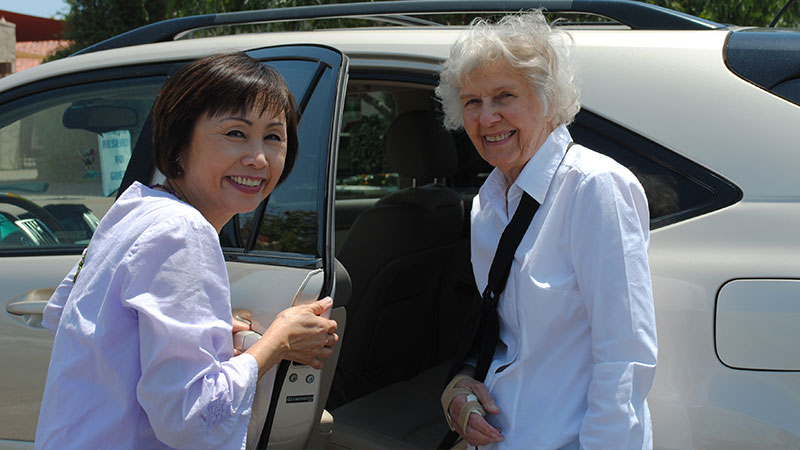June 9, 2020
Letter – Racial Justice and Village Movement California
A Letter from the Executive Director
I want to acknowledge my position as a White woman writing about race. As the leader of Village Movement California, it’s important to share my thoughts with you, and to acknowledge that I do not face racism. I’ve been learning about our country’s history and my own Whiteness for many, many years. I continue to learn and to make mistakes, all the while working towards racial justice. I welcome your feedback anytime: charlotte@villagemovementcalifornia.org.
The past week was long and full of anguish, outrage, and an uprising taking hold across the nation in response to police terror. We are entering a threshold in our history when old systems may finally be collapsing, and new ones built. Village Movement California is committed to being a positive force for change. This commitment is required to fulfill our vision: a society where all stages of life offer meaningful opportunities for growth, connection, and joy; where people of all backgrounds and economic means can
age with dignity, purpose, and self-determination.
Many of us long for a racially and ethnically diverse and inclusive village movement. Our 2018 survey showed that 84% of our members identify as White, 6% Asian and Asian American 3.5% Hispanic/Latinx, 3 % African American, 2.5% mixed race, and less than 1% American Indian and Alaska Native. Some villages have conducted outreach to communities of color living in their service areas and have achieved limited success. Why is that? It’s an important question for us to explore together in the coming weeks
and months.
Villagers and friends who are not White: We understand that you and your family have dealt with racism throughout your lives, whether through the Japanese Internment during WWII, anti-immigrant speech, or fear for your lives. We want to show up for you in our villages. We need your vision and leadership to bring about a diverse, equitable, and inclusive movement. We pledge to create spaces for your leadership.
A first step for those of who us are White is to learn about White privilege. As a mostly White movement, we need to examine this. How might we use our White privilege for social change? This classic article, White Privilege: Unpacking the Invisible Knapsack by Peggy McIntosh is a must read.
I want to extend several invitations to you.
I invite you to explore structural Anti-Blackness and racism. Anti-Blackness has led to the disproportionate number of African Americans contracting and dying from COVID-19, and the recent murders of George Floyd, Ahmaud Arbery, and Breonna Taylor. We need to grapple with this form of institutionalized dehumanization of African American people that has driven our nation’s history. Please read last week’s article by dr. kihana miraya ross. It’s critically important.
I invite you to immerse yourselves in the stories and experiences of people of color. Go online regularly to read articles, listen to podcasts, watch movies and television shows. Ibram X. Kendi, author of How to be an Antiracist, was interviewed on two podcasts this week. Listen to one of them!
I invite you to identify organizations in your community that are working to advance racial justice and build relationships with them. The diversity and inclusion of our movement rests upon strong partnerships with people of color led organizations. Ask them what they need and support them with volunteers and money. Being an ally is more important than ever. Sunday’s article in the San Francisco Chronicle covers
this topic.
Our movement is founded on principles of belonging. We intentionally build communities where older adults can belong to something larger than themselves. Ageism is a form of othering. So are racism and Anti-Blackness. If we are committed to the prospect of older adults belonging in our communities and societies, we need to be committed to everyone’s belonging. This framework was pioneered by john a. powell, civil rights attorney, scholar, and director of the Othering and Belonging Institute.
Friday was Breonna Taylor’s 27th birthday, and people throughout the world celebrated her life and mourned her death. Let’s work for the day when no one’s granddaughter or grandson fears for their lives because of the color of their skin. When you, their grandparents, no longer hold those fears. I know we can make a contribution to that future.
Please look for ongoing communication from our Diversity, Equity, and Inclusion Team in your inbox, and in the June 17 newsletter.
With lots of love and fierce dedication to a just future,
Charlotte

